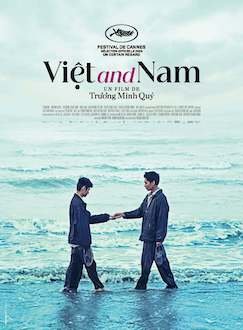Direction: Karim Ainouz
Country: Brazil
After experiencing Hollywood last year with the period drama Firebrand, filmmaker Karim Ainouz (Madame Satã, 2002; Invisible Life, 2019) returns to Brazil to helm Motel Destino, a mundane and sexually-charged neo-noir thriller that plays like a haunting phantasmagoria. While the script itself lacks depth, the film benefits from its sensory overload, visual experimentation, and a Coen Brothers-inspired score that evokes sinister western landscapes.
Living in Ceará, Heraldo (Iago Xavier) plans to move to São Paulo but must first complete one last job for drug kingpin and local artist Bambina (Fabíola Líper). When things spiral out of control, he takes refuge in a seedy sex motel, aided by its owners: the restless Dayana (Nataly Rocha) and her volatile, voyeuristic husband, Elias (Fábio Assunção).
There’s no pretentiousness or ego in the trio’s performances, and enough tension sustains interest until the film’s ultimately disappointing ending. Motel Destino is a vicious piece of work from a director unafraid to expose the primal, darker instincts of his characters. Unfortunately, this stylized erotic thriller is undermined by clumsy dialogue and a hastily executed conclusion. It offers a shallow cinematic experience that may not leave you breathless, but its darkness lingers like cement, and the tension between its sleazy content and neon-lit aesthetics is precisely where its power resides.








































